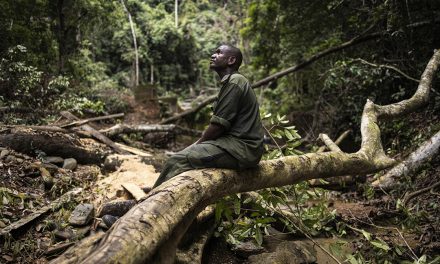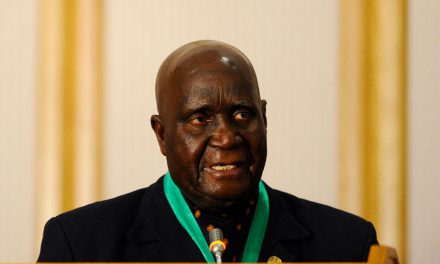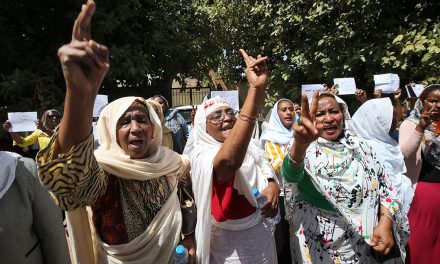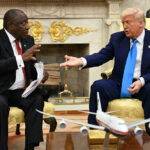Last week, the South African electorate collectively decided that no single political party warranted majority support in the National Assembly. To varying extents, voters in Gauteng, KwaZulu-Natal and Northern Cape reaffirmed this at the provincial levels.
The 2024 election results also underscored a key takeaway from the 2021 local elections, namely that some form of coalition governance is rapidly becoming the new normal in South Africa.
In the immediate aftermath of the election, party elites have suggested that there should be a flexible entry point into coalition negotiations, especially at the national level. This, they argue, is a by-product of the election outcome, where the ANC’s drop to 40% (from 57.5% in 2019) will mean that, in order to govern for any prolonged period, they probably need to rely on at least one other party with a significant presence in the national assembly.
The only parties which meet this standard in their own right are the Democratic Alliance and uMkhonto weSizwe. A combination of the Economic Freedom Fighters along with a small party, could also get the ANC over that critical 50% mark. In each case, however, both the ANC, and any of these prospective partners, will need to co-govern — which necessarily requires a degree of mutual confidence and trust — in the wake of an election characterised by virulent invective between these parties and their respective voter bases.
A related and short-term consideration which many proponents of a flexible negotiations approach cite, is the constitutional requirement that the National Assembly elects a new president within 14 days of the IEC’s official election results declaration. This is self-evidently too short a period for political parties to flesh out a full coalition agreement encompassing matters such as agreeing on key political and administrative appointments; formulating joint policy resolutions and establishing effective dispute-resolution mechanisms.
However, even if we acknowledge that a flexible approach in coalition negotiations is likely to be the most prudent for the next few months, it is critical that political parties recognise the broader public despondency which has hung over South Africa in recent years.
Yet again, voter turnout saw a sharp dip, going from 66% in 2019 to 58% in 2024. Cratering voter turnout was also a feature of the 2021 local elections and, this time, there is no “Covid factor” which can be cited as accounting for drastically reduced turnout.
Beyond election day participation, public surveys are demonstrating time and time again that democratic dissatisfaction is continuing to rise in South Africa. And although it is too early to ascribe a definitive causal link, it is still striking that some of the 2024 election’s “biggest gainers” are parties that explicitly stood against South Africa’s democratic constitutional framework.
Within this context, and given the need to set a suitable precedent for the coalitions era, we believe that having formalised and published agreements should be the paramount medium-to-long term objective of any post-election pacts. This view applies regardless of whether these pacts are full-scale coalition agreements, or more limited confidence-and-supply arrangements wherein certain parties agree to support the government in confidence and, following inclusion in negotiations, budgetary votes.
In June 2023, a year in advance of these historic elections, and given our strong focus on the local governance space, Good Governance Africa released a policy briefing concerning the issue of political accountability in South Africa. One of our key recommendations was that “in coalitions, political parties should commit to publishing coalition agreements …”
We argued for this because instability was clearly rising, especially in major metros such as Johannesburg and Tshwane. The experiences of these cities since 2016 is a cautionary tale of what might happen at the national and provincial levels if our society gives political parties “flexibility” in the initial coalition negotiation phase without subsequently pressuring them to formalise and publicise agreements for the sake of good governance.
In our view, governance failures in hung councils — where no party can claim an outright majority — largely occur because competing political and personal interests threaten service delivery and administrative stability. Thus, transparent and publicly available coalition agreements should allow citizens to hold their governments to account and reduce instability.
The economist Debraj Ray, in his 2007 book on coalition formation, describes the agreement to form a coalition (in general) as a means of reducing the negative externalities that individuals would — left to their own devices — impose on one another. Negative externalities are the divergence between private returns and social costs, the latter often being the result of choices made to maximise the former. As Ray puts it: “The explicit agreement to form a coalition may be viewed as an agreement to be jointly sensitive to those externalities and to take actions to try and lower them.”
This does not seem to have materialised under some conditions in hung councils in South Africa, though it has in others. This raises the question of how to ensure that any coalition agreement becomes binding in some way. Evidently, parties in some local councils have calculated that they have an incentive to renege on initial pacts they participated in.
We are not alone in the conclusion that having some “binding” mechanisms may alleviate coalition instability. Just one week before the 29 May general elections, the Department of Cooperative Governance and Traditional Affairs tabled an amendment bill to the Municipal Structures Act, which primarily concerned the functioning of hung councils at the local level.
One key suggested amendment states: “In a municipality in which no party has a majority of seats on the council, any two or more political parties may enter into a binding coalition agreement, which must be made public, to regulate their participation in the governance of the municipality during the term of the council.”
Adding binding mechanisms to coalition formation does not mean that these agreements must contain irreversible commitments — that would be impractical given the nature of democratic politics. However, they require some degree of binding commitment to ensure stability.
With coalition formation likely to be a more common part of our future at every level of government in South Africa, we need a credible and universally applicable mechanism to alleviate at least some of the causes of instability from adversely impacting governance and further eroding confidence in our democracy.
To take one example, parties might enter a coalition agreement for the sake of gaining potential access to lucrative contracts. If these fail to materialise, they might renege on the initial agreement, as those contracts were more valuable to them than future political credibility. At the local level, some parties unscrupulously use their “kingmaker” positions to cause instability until they get what they want.
In our view, publishing coalition agreements and making them publicly available will reduce the incentives for kingmaker agents to sabotage shaky coalitions. Explicit agreements, for instance, that parties will avoid bringing motions of no confidence (for a specified minimum time) once a president, premier or mayor is elected, could help. Ultimately, public agreements require careful thought by all parties because they increase the cost of reneging, once published.
Any national coalition pact should also have as one cornerstone a firm drive toward implementing the existing national framework for professionalising the public service. Ensuring that the day-to-day functioning of government is not inordinately affected by political strife will prove critical in determining whether South Africa can in fact slash its prohibitive levels of poverty, inequality and unemployment. This is also why adherence to a stable fiscal framework at the national, provincial and local levels should form an essential component of any post-election pact.
The reasons for the ANC’s precipitous drop will be debated for a long time to come. What is less a matter of discussion is that declining public satisfaction and participation in our democracy represents a serious problem, particularly for those who believe that our constitutional framework remains our diverse country’s best hope for achieving its developmental goals.
In this sense, re-engaging the public, including the millions of non-voters, necessarily requires political parties to act more in tune with our founding constitutional values of “accountability, responsiveness and openness”. In this coalition era, it also requires the rest of society to keep compelling those same political parties to normalise the formalisation and publishing of coalition agreements.
This article also appeared in the Mail & Guardian.














